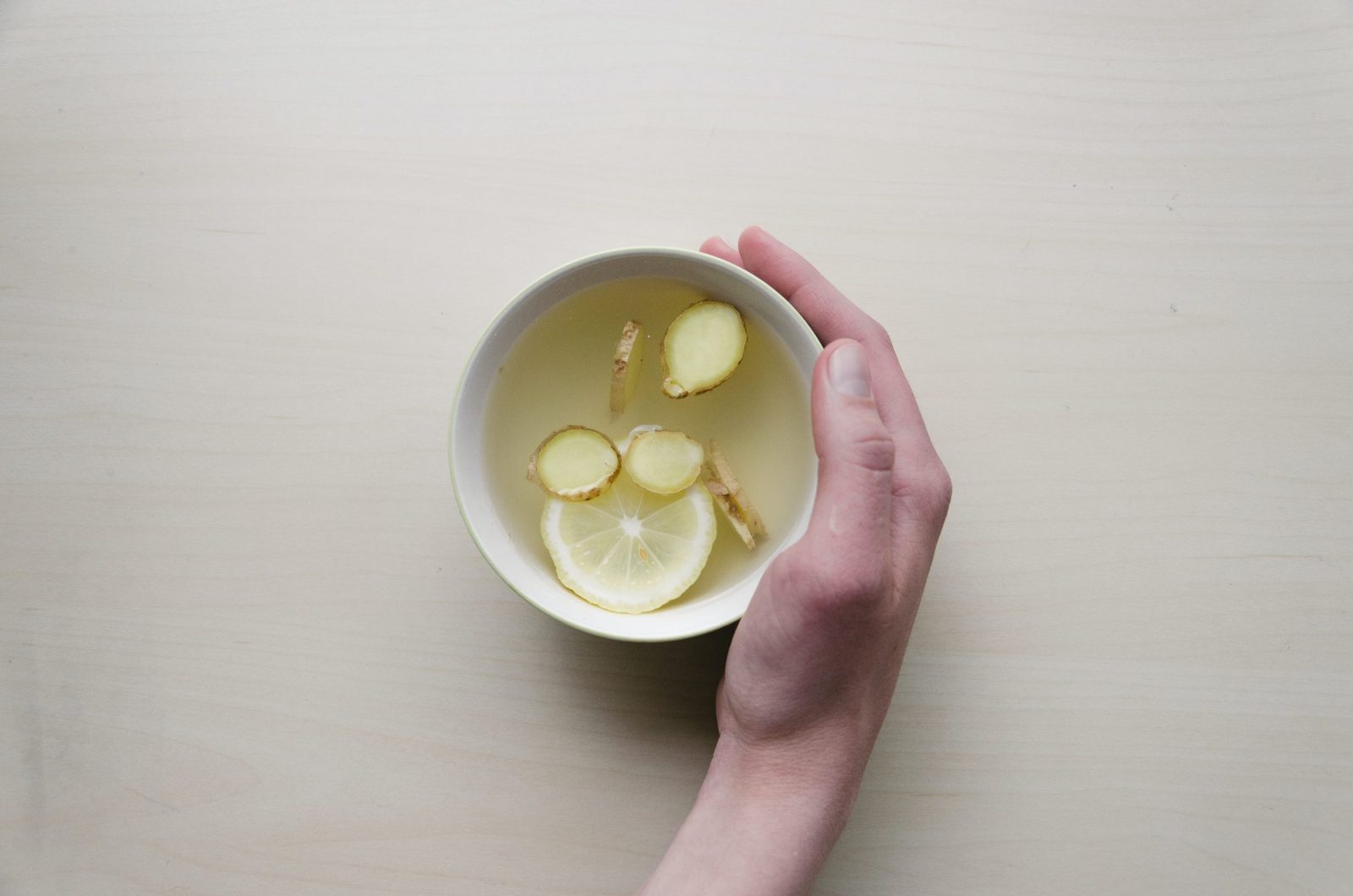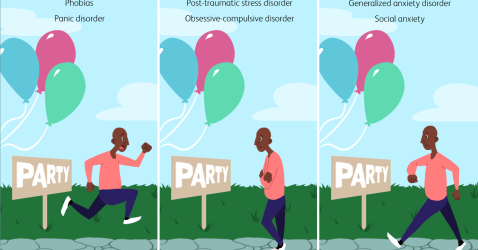Are There Specific Stress Management Techniques For Students Or Young Adults?
Stress is a common experience for students and young adults, but finding effective ways to manage it can be a challenge. In our fast-paced and demanding world, it becomes essential to navigate through the pressures of academics, relationships, and personal growth with ease. Whether you’re a student struggling with exam anxiety or a young adult overwhelmed by work-life balance, this article explores practical stress management techniques designed specifically for the unique challenges faced by students and young adults. Discover how to achieve a healthier and more balanced lifestyle, and unlock the tools you need to conquer stress and thrive in all aspects of your life.
Physical Exercise
Benefits of Physical Exercise
physical exercise is not only beneficial for your physical health but also plays a significant role in managing stress. Engaging in regular physical activity can help reduce the levels of stress hormones in your body, such as cortisol, while promoting the production of endorphins, the feel-good chemicals. This, in turn, can improve your mood, boost your energy levels, and enhance your overall well-being. Additionally, physical exercise can help you sleep better, increase your confidence, and improve your ability to concentrate and focus.
Types of Physical Exercise for Stress Management
When it comes to managing stress through physical exercise, there are various types you can choose from. Aerobic exercises, such as running, swimming, or cycling, are excellent for reducing stress as they increase blood flow to the brain and release endorphins. Strength training, such as weightlifting or resistance exercises, can also be effective in managing stress by providing a sense of empowerment and reducing muscle tension. Other forms of exercise, such as yoga and tai chi, focus on combining physical movement with mindfulness and can enhance both physical and mental well-being.
Tips for Incorporating Physical Exercise into Daily Routine
Incorporating physical exercise into your daily routine doesn’t have to be a daunting task. Start by setting realistic goals and gradually increasing the duration and intensity of the exercise over time. Find activities that you enjoy and that align with your interests, as this will make it easier to stick to a regular exercise routine. Consider incorporating exercise into your daily activities, such as taking the stairs instead of the elevator or going for a walk during your lunch break. Remember, even small bursts of physical activity throughout the day can contribute to managing stress effectively.
Breathing Exercises
Importance of Breathing Exercises
Breathing exercises are simple yet powerful techniques that can help you manage stress and promote a sense of calmness and relaxation. By focusing on your breath, you can activate the body’s relaxation response and reduce the symptoms of stress, such as rapid heart rate and shallow breathing. Breathing exercises can also help improve oxygen intake, clear the mind, and enhance overall well-being.
Different Breathing Techniques
There are several breathing techniques you can practice to manage stress effectively. One technique is diaphragmatic breathing, also known as belly breathing, where you inhale deeply, allowing your belly to rise, and exhale slowly, allowing your belly to fall. Another technique is square breathing, which involves inhaling for a count of four, holding the breath for a count of four, exhaling for a count of four, and holding the breath again for a count of four. Alternate nostril breathing, where you inhale through one nostril and exhale through the other, can also be beneficial for balancing energy and reducing stress.
How to Practice Breathing Exercises
To practice breathing exercises, find a quiet and comfortable space where you can sit or lie down. Start by taking a few deep breaths to relax your body and mind. Then, choose a breathing technique that resonates with you and begin to focus on your breath. Allow your breath to become slow, deep, and rhythmic. You can close your eyes to enhance your concentration or place one hand on your belly to ensure you are using diaphragmatic breathing. Practice breathing exercises for a few minutes each day, gradually increasing the duration as you become more comfortable. Incorporate these exercises into your daily routine, especially during moments of stress or when you need to calm your mind and body.

Mindfulness and Meditation
Benefits of Mindfulness and Meditation
Mindfulness and meditation are powerful practices that can promote relaxation, reduce stress, and increase self-awareness. By cultivating a present moment awareness and non-judgmental attitude, mindfulness and meditation allow you to gain a deeper understanding of your thoughts and emotions, leading to a calmer and more balanced state of mind. Regular practice of mindfulness and meditation has been shown to improve attention span, regulate emotions, and enhance overall well-being.
Introduction to Mindfulness Techniques
Mindfulness techniques involve paying attention to the present moment with openness, curiosity, and acceptance. One simple mindfulness technique is body scan meditation, where you systematically bring your attention to different parts of your body, noticing any sensations or areas of tension. Another technique is mindful eating, where you focus on the sensory experience of eating, such as the taste, texture, and smell of the food. Walking meditation, loving-kindness meditation, and mindful breathing are also popular mindfulness techniques that can be practiced both formally and informally.
Guided Meditation Practices
Guided meditation practices can be helpful, especially for beginners or those looking for structured guidance. You can find numerous guided meditation practices online or through meditation apps. These guided sessions typically involve a narrator who directs your attention and provides instructions for meditation. Guided meditations can cover various themes, such as relaxation, stress reduction, self-compassion, or gratitude. Experiment with different guided meditations and find ones that resonate with you and your specific needs. Set aside dedicated time each day for meditation practice to reap the maximum benefits.
Time Management
Understanding the Importance of Time Management
Effective time management is crucial for reducing stress and maintaining a healthy work-life balance. When you manage your time efficiently, you can prioritize tasks, complete them in a timely manner, and create space for relaxation and self-care. Time management allows you to feel more in control of your day-to-day activities, reducing feelings of overwhelm and stress associated with deadlines and commitments.
Effective Time Management Strategies
To effectively manage your time, start by setting clear goals and priorities. Break down larger tasks into smaller, manageable ones and create a schedule or to-do list to keep track of your activities and deadlines. Prioritize tasks based on urgency and importance, and allocate specific time blocks to work on each task. Avoid multitasking, as it can decrease productivity and increase stress levels. Instead, focus on one task at a time and minimize distractions. Learn to delegate tasks when possible and say no to commitments that do not align with your priorities. Consider using productivity tools or apps to help you stay organized and manage your time more efficiently.
Creating a Schedule or Planner
Creating a schedule or planner can significantly contribute to effective time management. Start by using a physical planner or a digital calendar to map out your daily, weekly, and monthly activities. Include all your commitments, such as classes, work, and social engagements, as well as dedicated time for self-care and relaxation. Break down your tasks into smaller, actionable steps and assign specific time slots for each task. Be realistic with your time allocations and allow buffer time for unexpected events or delays. Regularly review and update your schedule or planner to ensure it reflects your current priorities and allows for flexibility. With a well-organized schedule, you can reduce stress and stay on top of your responsibilities.

Healthy Eating Habits
Impact of Nutrition on Stress Levels
Eating a healthy and balanced diet plays a significant role in managing stress. When you nourish your body with the right nutrients, you provide it with the fuel it needs to function optimally, both physically and mentally. On the other hand, poor nutrition can lead to imbalances and deficiencies that contribute to increased stress levels. Research suggests that certain nutrients, such as omega-3 fatty acids, antioxidants, and B vitamins, can help regulate stress hormones and support overall mental well-being.
Key Nutrients for Stress Reduction
Incorporating key nutrients into your diet can help reduce stress and promote a sense of well-being. Omega-3 fatty acids, found in fatty fish, flaxseeds, and walnuts, have been linked to reducing anxiety and improving mood. Antioxidant-rich foods, such as berries, dark chocolate, and green leafy vegetables, can help combat oxidative stress caused by chronic stress. B vitamins, found in whole grains, legumes, and leafy greens, can support the production of neurotransmitters involved in mood regulation. Additionally, magnesium, found in nuts, seeds, and leafy greens, can help relax muscles and promote relaxation.
Tips for Maintaining a Healthy Diet
Maintaining a healthy diet doesn’t have to be complicated. Start by focusing on whole, unprocessed foods and aim for a variety of fruits, vegetables, whole grains, lean proteins, and healthy fats. Stay hydrated by drinking plenty of water throughout the day. Avoid or limit the consumption of sugary and processed foods, as they can lead to energy crashes and mood fluctuations. Practice mindful eating by paying attention to your hunger and fullness cues and savoring each bite. Plan and prepare your meals in advance to ensure you have nutritious options readily available. Remember, small changes to your eating habits can have a significant impact on your overall well-being and stress management.
Quality Sleep
The Link Between Sleep and Stress
Quality sleep is essential for managing stress, as it allows your body and mind to recover and recharge. Chronic stress can disrupt sleep patterns, leading to difficulty falling asleep, staying asleep, or experiencing restful sleep. On the other hand, sleep deprivation can increase stress levels and affect cognitive function, mood, and overall health. Establishing healthy sleep habits and creating a relaxing sleep environment can significantly improve the quality of your sleep and enhance stress management.
Establishing a Bedtime Routine
Establishing a consistent bedtime routine can signal to your body that it’s time to unwind and prepare for sleep. Start by setting a regular sleep schedule, aiming for seven to eight hours of sleep per night. Create a relaxing routine before bed, such as taking a warm bath, practicing relaxation techniques, or reading a book. Minimize distractions in your bedroom, such as electronic devices, bright lights, and noise, to create a sleep-friendly environment. Ensure your mattress and pillows are comfortable and supportive, and use blackout curtains or a sleep mask to block out any unwanted light. Avoid consuming caffeine, heavy meals, or stimulating activities close to bedtime. By prioritizing quality sleep, you can better manage stress and improve your overall well-being.
Creating a Relaxing Sleep Environment
Creating a relaxing sleep environment is key to promoting restful sleep and reducing stress. Keep your bedroom clean, organized, and free from clutter to create a peaceful atmosphere. Use calming colors, such as muted blues or soft greens, on your walls and bedding to evoke a sense of tranquility. Utilize room-darkening shades or curtains to block out external light sources and create a conducive sleep environment. Adjust the temperature to a comfortable level, typically between 60 and 67 degrees Fahrenheit. Consider using white noise machines or earplugs to mask any disturbing sounds. Invest in a comfortable mattress and pillows that provide proper support. By creating a sleep sanctuary, you can promote deep, restorative sleep and effectively manage stress.

Social Support Networks
Importance of Social Support in Stress Management
Building and nurturing social support networks is crucial for managing stress effectively. Having strong connections with friends, family, and support systems can provide emotional support, a sense of belonging, and a space to share your thoughts and experiences. Social support networks can act as a buffer against stress, providing comfort and assistance during challenging times. Studies have shown that individuals with strong social support tend to have better mental health outcomes, reduced stress levels, and increased resilience.
Building and Nurturing Positive Relationships
To build and nurture positive relationships, start by reaching out to friends and acquaintances with similar interests or values. Join clubs, organizations, or support groups where you can meet like-minded individuals. Be open and willing to listen and support others, as this can strengthen your relationships and foster trust. Cultivate empathy, compassion, and understanding in your interactions with others. Invest in quality time with loved ones, whether it’s through shared activities, meals, or simply engaging in meaningful conversations. Additionally, seek opportunities to give back to your community, as volunteering and helping others can also cultivate a sense of fulfillment and connection.
Seeking Professional Help and Counseling
In some cases, managing stress may require professional help and counseling. If you find that your stress levels are significantly impacting your daily life or causing distress, consider reaching out to a mental health professional. They can provide guidance, support, and therapeutic interventions to help you develop effective stress management strategies. Whether it’s through individual therapy, group therapy, or counseling services provided by your educational institution or workplace, seeking professional help can be a valuable resource in addressing and managing stress.
Stress-Relieving Hobbies
Engaging in Creative Activities
Engaging in creative activities can be a powerful way to relieve stress and enhance your overall well-being. Pursuing creative hobbies allows you to express yourself, channel your emotions, and engage in activities that bring joy and fulfillment. Whether it’s painting, writing, playing a musical instrument, or crafting, creative activities provide an outlet for self-expression and a break from the demands of daily life. They can help reduce stress by promoting mindfulness, enhancing relaxation, and fostering a sense of accomplishment.
Exploring Nature and Outdoor Recreation
Nature and outdoor recreation are natural stress relievers that can provide a much-needed escape from the pressures of daily life. Spending time in nature has been shown to reduce stress levels, improve mood, and enhance overall mental well-being. Take a walk or hike in a nearby park, garden, or forest to connect with nature and enjoy the beauty of your surroundings. Engage in outdoor activities such as biking, swimming, or practicing yoga in an outdoor setting. These activities can help reduce stress by promoting physical exercise, connecting with nature, and providing a change of scenery.
Finding Joy in Personal Interests
Finding joy in your personal interests is an essential aspect of stress management. Engage in activities that bring you joy and make you feel inspired and fulfilled. It could be playing a sport, dancing, cooking, reading, or any other hobby that brings you happiness. Dedicate time each week to indulge in these interests and prioritize them as part of your self-care routine. By incorporating activities that you genuinely enjoy into your life, you can boost your mood, reduce stress, and cultivate a greater sense of well-being.
Cognitive Techniques
Identifying and Challenging Negative Thoughts
Cognitive techniques involve identifying and challenging negative thoughts that contribute to stress. Becoming aware of your negative thought patterns and replacing them with more realistic and positive ones can significantly reduce stress levels. Start by paying attention to your thoughts and noticing any negative or self-defeating patterns. Once you identify a negative thought, consciously challenge its validity by questioning the evidence supporting it. Replace the negative thought with a more balanced or positive alternative. Over time, with practice, you can reframe your thoughts and develop a more optimistic and resilient mindset.
Practicing Problem-Solving Skills
Practicing problem-solving skills can help you effectively address and manage stressful situations. Start by identifying the problem or stressor you are facing and break it down into smaller, manageable parts. Brainstorm potential solutions or strategies to address the problem. Evaluate the pros and cons of each solution and choose the one that aligns best with your goals and values. Implement the chosen solution and evaluate its effectiveness. If needed, make adjustments and try alternative approaches. Developing problem-solving skills can empower you to take control of stressful situations and find effective solutions, reducing feelings of helplessness and stress.
Cultivating Resilience and Optimism
Cultivating resilience and optimism is a mindset shift that can significantly impact stress management. Resilience is the ability to bounce back from setbacks and adversity, while optimism involves having a positive outlook and expecting good outcomes. Focus on building resilience by reframing challenges as opportunities for growth and learning. Practice self-compassion and embrace failures as valuable lessons. Surround yourself with positive influences, such as supportive friends or mentors. Cultivate an optimistic mindset by practicing gratitude, focusing on the positives in your life, and challenging negative self-talk. By cultivating resilience and optimism, you can better navigate stressful situations and maintain a positive outlook.
Relaxation Techniques
Progressive Muscle Relaxation
Progressive muscle relaxation is a relaxation technique that involves tensing and releasing different muscle groups in your body to induce a state of deep relaxation. Start by finding a comfortable position, either lying down or sitting. Begin with your toes, tensing the muscles for a few seconds and then releasing the tension. Move up your body, progressively tensing and relaxing each muscle group, including your calves, thighs, abdomen, chest, arms, and face. Pay attention to any sensations as you release tension, focusing on the feelings of relaxation and relief. Practice progressive muscle relaxation for a few minutes each day or whenever you feel tense or stressed.
Guided Imagery and Visualization
Guided imagery and visualization involve using your imagination to create calming mental images or scenarios. Find a quiet and comfortable space where you can sit or lie down. Close your eyes and take a few deep breaths to relax your body and mind. Choose a calming image or scenario that resonates with you, such as a peaceful beach or a serene forest. Visualize yourself in that environment, engaging all your senses to make the experience as vivid as possible. Focus on the details and let go of any tension or stress as you immerse yourself in the imagery. Practice guided imagery and visualization for a few minutes each day, allowing yourself to escape into a world of relaxation and tranquility.
Using Aromatherapy and Essential Oils
Aromatherapy and essential oils can be powerful tools for relaxation and stress management. Certain scents, such as lavender, chamomile, and bergamot, have been shown to promote relaxation and reduce stress levels. Consider using a diffuser to disperse essential oils into the air or inhaling the scents directly from the bottle. You can also dilute essential oils in carrier oils, such as jojoba or almond oil, and use them for gentle massages or apply them to pulse points. Experiment with different scents and find ones that appeal to you and have a calming effect on your mind and body. Be sure to follow proper safety guidelines and consult a qualified aromatherapist if needed.
In conclusion, managing stress effectively is crucial for students and young adults, as it can significantly impact their overall well-being and academic performance. By incorporating various stress management techniques into their daily lives, individuals can reduce stress levels, enhance relaxation, and promote a sense of balance and resilience. Physical exercise, breathing exercises, mindfulness and meditation, time management, healthy eating habits, quality sleep, social support networks, stress-relieving hobbies, cognitive techniques, and relaxation techniques are all valuable tools that can contribute to effective stress management. It’s important to remember that each person’s stress management journey is unique, and it may require a combination of techniques to find what works best for them.

















